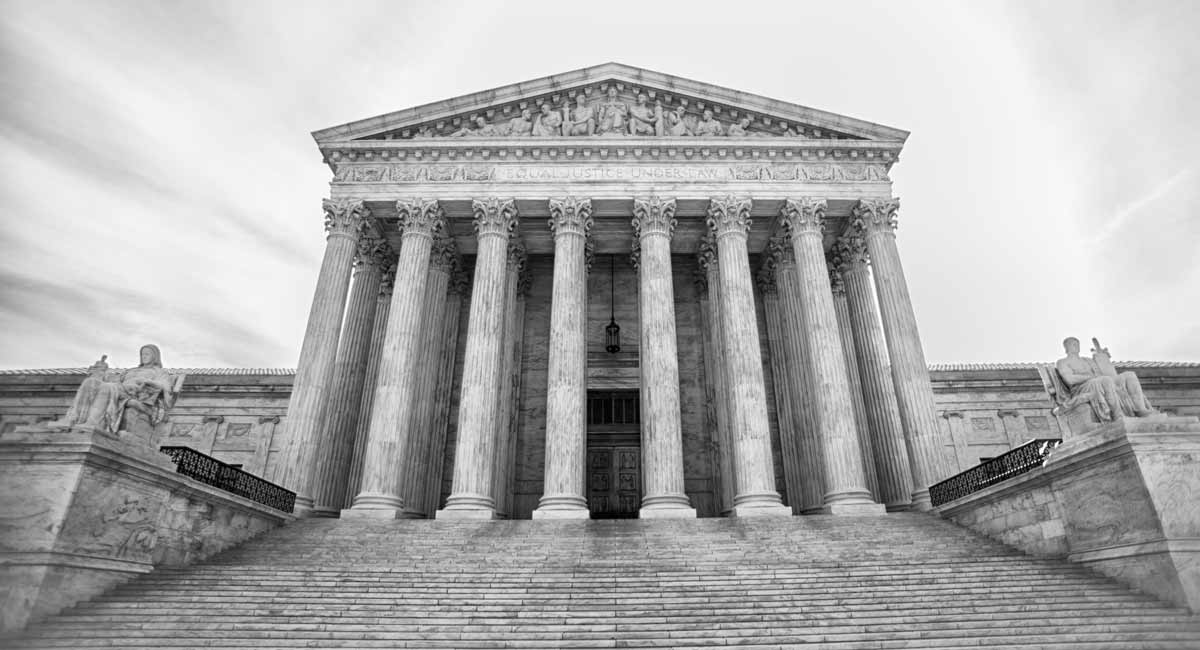The Supreme Court of the United States has issued a decision with what many are calling “mixed results.” In 2016, Indiana passed a law banning abortions on the basis of the preborn child’s sex or disability, and also required abortion facilities to either cremate or bury the remains of aborted children instead of disposing of them as medical waste. Last year, the 7th U.S. Circuit Court of Appeals blocked the law, but in this decision, the Supreme Court upheld part of the law — the latter part, requiring the humane burial of aborted children. Planned Parenthood had opposed both provisions of the law.
In his opinion, noted conservative Justice Clarence Thomas wrote, “I would have thought it could go without saying that nothing in the Constitution or any decision of this Court prevents a State from requiring abortion facilities to provide for the respectful treatment of human remains.”
The National Law Journal noted:
In its opinion, the Supreme Court reversed a decision by the U.S. Court of Appeals for the Seventh Circuit, which had ruled that the state’s interest in the “humane and dignified” disposal of human remains was “not legitimate” and even if it were legitimate, there was no rational relationship between that interest and the law as written. The Supreme Court has acknowledged a state’s interest in proper disposal of fetal remains, the justices said.
“The only remaining question is whether Indiana’s law is rationally related to the state’s interest in proper disposal of fetal remains. We conclude that it is, even if it is not perfectly tailored to that end,” the court said in its per curiam order. The justices said that in challenging the Indiana fetal remains provision, the plaintiffs never argued the law imposed an undue burden on a woman’s right to obtain an abortion. Other courts have analyzed similar provisions under that standard, but the high court said, “Our opinion expresses no view on the merits of those challenges.”
READ: Abortion advocates: ‘Discrimination’ can’t apply to preborn because they aren’t people
Alliance Defending Freedom issued an email press release in reaction to the decision, calling the 7th Circuit’s decision “deeply flawed” and endorsing “a lethal form of discrimination, as long as it occurs in utero.” Justice Thomas astutely pointed this out in his opinion, according to ADF’s press release. Thomas said:
… Given the potential for abortion to become a tool of eugenic manipulation, the [c]ourt will soon need to confront the constitutionality of laws like Indiana’s….
Enshrining the constitutional right to an abortion based solely on the race, sex, or disability of an unborn child, as Planned Parenthood advocates, would constitutionalize the views of the 20th Century eugenics movement.’
It should be unthinkable for an expectant mother to face pressure to abort her baby simply because she is a girl, or because she may have a genetic abnormality like Down syndrome.
No sensible person believes that aborting a baby for these reasons is legitimate, but Indiana’s law—which prohibits such death sentences for babies simply because of who they are—is entirely legitimate.
Justice Clarence Thomas’s statement on the decision also points to the very reason why pro-lifers believe Roe v. Wade is and has always been bad law — because a court “created” it out of nothing (emphasis added):
Although the Court declines to wade into these issues today, we cannot avoid them forever. Having created the constitutional right to an abortion, this court is duty bound to address its scope. In that regard, it is easy to understand why the District Court and the Seventh Circuit looked to Casey to resolve a question it did not address.
Where else could they turn? The Constitution itself is silent on abortion.
Vice President Mike Pence, formerly the governor of Indiana at the time of the legislation’s passage, responded to the news today on Twitter. His office also released a statement, saying that the VP “commends” SCOTUS for upholding the part of the law regarding the disposal of the remains of aborted children. “This ruling also bars the horrific practices of organizations that are in the business of selling fetal remains,” said VP press secretary Alyssa Farah. “We remain hopeful that at a later date the Supreme Court will review one of numerous state laws across the U.S. that bar abortion based on sex, race, or disability….”
As Governor of IN I was proud to sign a law that requires remains of aborted babies be treated w/dignity & respect and blocks groups like Planned Parenthood from the horrific practice of selling fetal tissue. Today’s decision by the Supreme Court was a victory for life!
— Vice President Mike Pence (@VP) May 28, 2019
Today, Justice Thomas wrote: SCOTUS has been zealous in the past in barring discrimination based on sex, race, & disability. Hopeful someday soon SCOTUS will recognize the same protections for the unborn when they rule on future appeals of pro-life legislation.
— Vice President Mike Pence (@VP) May 28, 2019
Live Action president and founder Lila Rose noted in a press release, “Pro-life Americans should be encouraged that the Supreme Court acknowledged the humanity of preborn children by affirming Indiana’s right to legislate that babies receive the basic dignity of burial, instead of allowing abortionists to throw away their broken bodies like trash. You don’t cremate and bury tumors – you cremate and bury human beings. The Supreme Court acknowledged these babies’ humanity after death but stopped short of recognizing the humanity of the preborn child before death. ”
Those who oppose abortion hold out hope that one day, Roe v. Wade itself will be overturned — a law which discriminates against and human beings in the womb, allowing for their deaths based on the supposed “right to privacy” of their mothers.
Editor’s Note: Updated 5/28 to add VP Mike Pence’s statement and tweets.
“Like” Live Action News on Facebook for more pro-life news and commentary!







